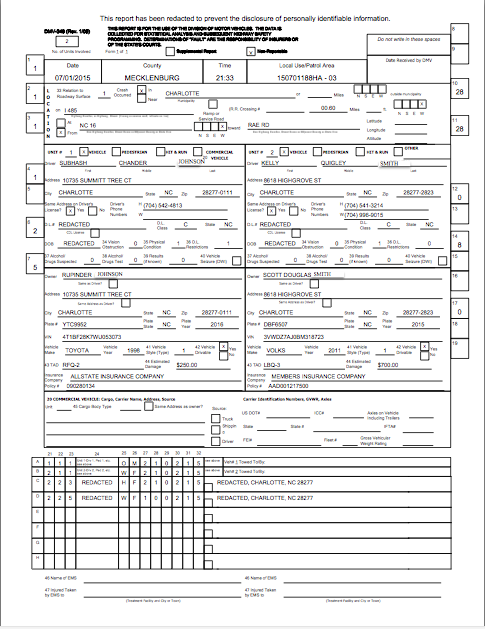Dash Cam and Newtons
Serge Semirog
We are sure that you've seen incredulous videos about insurance scams in Russia or police brutality during a routine motor vehicle check. Perhaps someone you know has used a camera to record the family summer road trip and shared the video with you. Dashboard cameras (aka Dash Cams) can be used for a plethora of reasons, most importantly for your safety.
Charlotteans spend 30 minutes on average commuting to work, according to the US Census Bureau, which means that an hour every week day is spent on the road. With so many people on the road, accidents happen (and serious ones at that!).
What if you could simplify your insurance claims process? What if you had undeniable proof that the other person was at fault for the accident? A dash cam is a unique tool that watches over you while you drive and records your view at all times. Let's look at some of the cool features that could help you in a motor vehicle accident:
Loop Recording
No matter how big your memory card is, eventually you will have to delete some data before the camera can record again. The ingenuity with dash cams is that they are programmed on a loop. After three, five, ten, or even fifteen minutes or more have elapsed, the camera begins to record over the old data. This means that without you needing to act, the camera will be able to constantly record and store a video of your view while driving. Any unnecessary footage will be deleted and any video you wish to keep can be downloaded to your computer!
G-Sensor
But wait, what if I'm in an accident? What if I am stunned beyond belief after experiencing a traumatic crash and I forget to stop the camera? Will it continue to record? With top of the line technology, dash cams now have a function called G-Sensor, named in respect to G-Force, which, upon detecting a disturbance, saves the current file and continues to record. If the car experiences abnormal deceleration, the G-Sensor activates. This means that you are able to have the data in regard to the accident and film the immediate response should it be necessary.
Parking Sensor
You may be asking why does it matter that the camera records all the time. I'm sure you've experienced the terrible event of coming back from your daily shopping to find a new ugly dent or scrape on the side of your car, and unfortunately with little to no proof of who did it. Dash cams have evolved so as to detect a disturbance, a change in force (or should we say, Newtons) even if your vehicle is stationary. Now, hit-and-run drivers are easier than ever to find due to clear footage detailing the accident. The most advanced dash cams will record front and rear views!
Dash cams in general are great safety nets. Police officers even have them installed so as to have proof of proper conduct on the road. Dash cams are incredibly popular in the East, especially in Russia, and we hope this trend starts right here in Charlotte. It would certainly make our job easier!
Note from the author: The title is a physics joke. Newtons is a measurement of force, what the dash camera would most likely record for the activation of the G-Sensor. Cam Newton is a football player.
Archive
- Auto Accident
- Auto Accident Charlotte
- Auto Insurance
- Auto Insurance Points
- Auto Insurance Policy
- Charlotte Foreclosure
- Charlotte Short Sale
- Deferred Prosecution
- Diminished Value Claim
- Divorce
- Driver's License
- Executive Action
- Illegal Blood-Alcohol Lev
- Immigration Reform
- Liability to 3rd Party
- Lost Wages
- Matthews Accident Attorne
- Medical Malpractice
- Motorcycle Accidents
- Negligence
- Press
- Rental Insurance
- Road Rage
- Short Sale
- Slip and Fall
- Speeding Ticket
- Texting
- Traffic Stop
- Traffic Violations
- Underage Drinking
- Wrongful Death

















